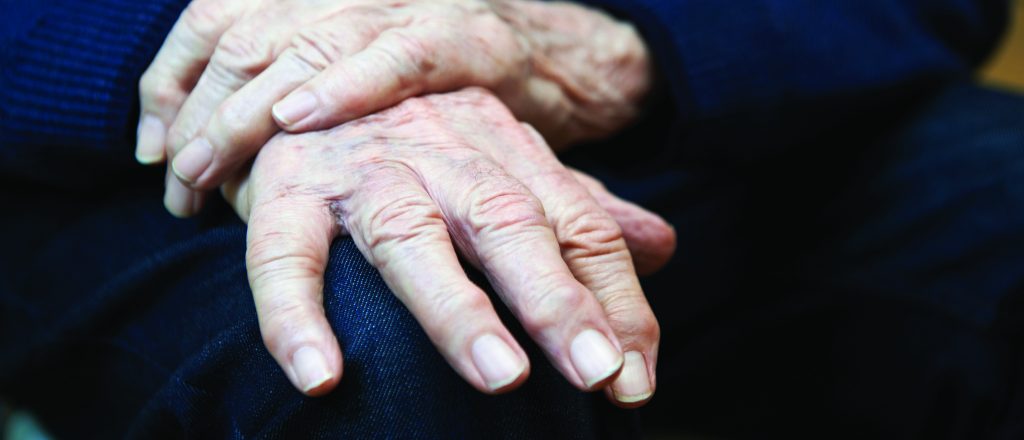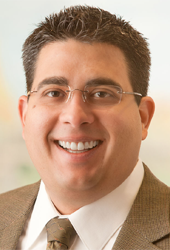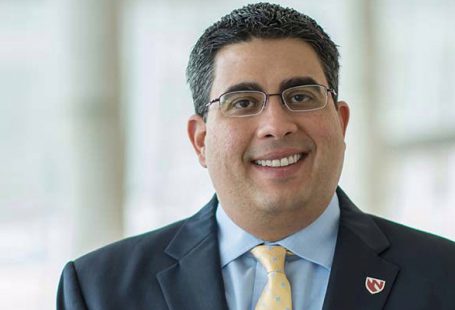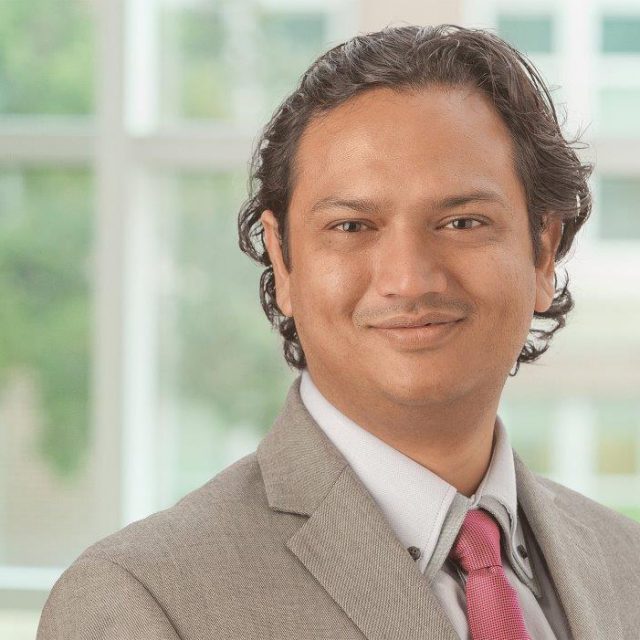
Danish Bhatti: Hello and welcome to movement disorder podcast. I’m Danish Bhatti. This week’s podcast will focus on concept and experience of movement disorders fellowship. We will discuss this topic with our movement disorders fellows. We’ll talk to them about the anguish and anxieties of choosing a movement disorder fellowship and going through the pros and cons of the choice and how it has changed their lives. Guys go ahead and introduce yourself.
James Shou: Hi I’m James Shou. First year fellow originally trained on the East Coast and now on here Sunny Sunny Omaha Nebraska Medical Center.
Ryan Brennan: I’m Ryan Brennan one of the second year fellow. I grew up in Michigan originally, did my residency in Wisconsin and then came here in Omaha.My
Louis Zayas: My name is Louis Zayas. I’m originally from San Juan Puerto Rico. I work as a General neurologist for three years before coming here. When I decided to do one year clinical track fellowship.
Becky Thompson: I am becky thompson. I’m originally from Massachusetts and one of the second year fellows here. and after joining my medical in St. Martin and New York i came to Nebraska for my neurology residency before staying here for my fellowship.
Danish Bhatti: Movement disorder fellowship is a one to two years of additional training that a neurologist decides to go through after completing a neurology residency training and becoming a full neurologist. This is not required and a neurologist does not require any fellowship to see the same patients and practice with all the same tools. So it really has only educational value to the person but does not add any financial value. It actually requires the sacrifice of work for another one to two years on a much reduced salary and continuing with additional academic burden of research and educational activities. If you think about it on surface it makes no sense. So guys why did you decide to do a fellowship?
Louis Zayas: So in my case after working for three years as a General Neurologist in a small rural town in Illinois. I realize the necessity of having these type of specialty in my community. Patients usually need to drive two three four hours to find these type of care. So my goal is to complete these fellowship so I can bring this knowledge to my community.
Ryan Brennan: Mine is similar to Louis although I think it’s a much harder decision for him to leave private practice and go through the training process again but very similar in respect to residency. At least where I trained was very inpatient focus. So lots of experience to train with stroke or critical care. However when it comes the outpatient chronic conditions diseases in managing those we really have limited experience and the limited experiences I did have with movement disorders Parkinson’s disease and seen the benefits you can provide to patients. Realizing how much I didn’t know and want to have a better knowledge base so I can help patients move forward with those conditions.
James Shou: Well in my case I guess it was originally went neurology thinking I would do you know stroke like that because that was the main focus and that is a very important part of what we do in neurology itself but to be honest movement disorder itself as a fellowship as a subspecialty was not very prominent at all in a location where I trained it was. I felt it was actually underrepresented most of the residents didn’t even have any sort of required training in movement disorders at all and remained kind of a mystery to me. They didn’t really make my decision until admittedly right in the fourth year of my training. When I did it as a an elective to try something new at least I was very impressed with the amount of skill that one has to have in terms observational ability and the level of detail one has to like to synthesize information on top of that to make the diagnosis. Furthermore I liked outpatient more than inpatients so.
Becky Thompson: I think for me I had a little bit of a skewed view kind of doing my residency here at University of Nebraska. I know that when I came here to interview on a Thursday and first people I met here was Dr Torres who did my interview and he was coming from a surgery that day. I don’t think I fully even understood at the time really DBS (deep brain stimulation) was or anything like that. I think it just kind of how excited he was about it. Throughout my residency having a chance to work a lot with Dr. Torres and also working with Dr Bertoni every Monday and my continuity clinic. I kind of I don think that I was brainwashed. I like to think that I made the decision on my own to take on Movement Disorders. It just seemed like a natural steps to kind of do a fellowship and be able to be fully specialized seeing movement disorder patients something I love doing rather than seeming like general neurology patient.
Danish Bhatti: James you kind of mentioned that you did some electives in movement disorders and I know in my residency I also did electives and movement disorders. Does anyone else have that same experience between lectures and disorders.
James Shou: So we had about 3 months of elective time in the fourth year and in the first month I did that just kind of as for fun but then got oh there is DBS, there is Botox and it’s like this is cool I got little bit of patient I got a little bit of surgical side and hands on experience as well so it felt like OK this is more than I can do with stroke.
Ryan Brennan: But one thing I’d say about the electives is that it kinda it gave you enough to intrigue and grab your interest. But looking forward if you want to be able to provide all of those therapeutic modalities for your patients such as DBS in Botox. I really learned in those that it was going to take much more training.
Danish Bhatti: It sounds like a lot of you were intrigued by movement disorders at the same time you felt you didn’t know enough during residency training is that sense we are getting.
Louis Zayas: Yes there is significant deficiency in term of teaching. when You do know your residency. Many times used to refer patients to movements disorder doctor because you get kind of like stuck. What you do now.
Danish Bhatti: What were you guys most worried about before starting movements disorder fellowship.
 Becky Thompson: I think I was probably the most worried about just I understood that there was so much that I didn’t know. I think I probably had no idea how much I didn’t know at that time by having just kind of like switching over to all movement disorders and the nuances of being there and everything is definitely overwhelming in the beginning .
Becky Thompson: I think I was probably the most worried about just I understood that there was so much that I didn’t know. I think I probably had no idea how much I didn’t know at that time by having just kind of like switching over to all movement disorders and the nuances of being there and everything is definitely overwhelming in the beginning .
Ryan Brennan: I think you touched on it already just the knowledge base that was there. What do I need to do any of the study or any to learn beforehand and then early on when starting you can think back and say well what did I learn in residency. Because a lot of that kind of went out the window or it was worthless.
Danish Bhatti: Very different approach in Movement Disorders. Localization doesn’t help anymore. Right. James.
James Shou: I was afraid that there was a lot more skill than I could manage and even though I could maybe kind of get close to it but it’s always there’s always so much more information that I’d have to consider.
Louis Zayas: I was not worried too much. I just was excited to learn from your guys but not too much worried.
Danish Bhatti: We have two second year fellows here and even the first fellows have been here for seven months. you are Almost 70 percent done with your Fellowship Louis. so What have you guys found the hardest part of your movement disorder fellowship.
Louis Zayas: I think the Botox clinic little difficult part to identify which muscles are you going to inject, how much so and especially when people have different approach.
Danish Bhatti: It may not just be the Botox clinic and might be three injectors who are so different.
Louis Zayas: You’re right.This is the most difficult part that require time. I think with time you keep getting better.
James Shou: Yes I’m Botox I agree with that DBS planning especially how to you know microelectrode recording and then you know how to plan and how to move the electorde. But I also like to add on for me personally is still the ultimate challenge realize in telling apart some psychogenic patients. Now you got a lot of this information that some people have something real on top of psycogenicity. So and how to tell that a part still rather than I have to say okay.
Louis Zayas: The other thing is how do you approach those patients. This is it. I think it’s very difficult because on so we are almost 100 percent sure. The problem here is sometime how do you approach those patients. And that’s the tricky part.
Danish Bhatti: Do you think Louis are you more sure about telling apart Psychogenic movement disorders from real movement disorders.
Louis Zayas: Oh yeah definitely for sure.
Ryan Brennan: I’d say less.
Louis Zayas: For sure. I think.
Danish Bhatti: That happens in second year, right. First year you are very sure that I think i know.
Louis Zayas: That there is one phenomenology that is supremely complex and that is Dystonia sometimes are very very difficult to differentiate psychogenic from organic Dystonia.
Danish Bhatti: How would a second year fellows work you have been here longer which you have shown me.
Ryan Brennan: Tremor remains one of the most difficulty complaints. Oh yeah I agree entirely. what you touched. That was also difficult to keep track of and that’s the techniques of three different attendings as far as, or preferences I should say.

Becky Thompson: I agree with the tremor. I’ve heard Dr Torres tremor lecture probably four or five times now and it’s like just when you think you understand it then you go examine a patient and it all falls apart and you could have a video around the form of movement disorder experts sitting in one room all arguing over phenomenology that they’re looking at in one video and you are sitting there wondering how are you supposed to take what is the right answer, its just harder.
Danish Bhatti: What about some of the things that you really loved about your fellowship.
Louis Zayas: I think this fellowship in Omaha . I like them more about the group is that like it’s like a family. All of you guys are very nice. You guys are always teaching this. The main thing is teaching is not just putting hard to do things work is just you guys are very worried about us. What I’m going to know what what are we going to learn. This is the kind of things that I love about you guys.
Ryan Brennan: That was a big reason why I chose here, one was poeple like louis said the people. That was a big factor for me but to the dedicated curriculum, to find a curriculum a structured curriculum like one here. I don’t know how many other programs out in the country have that.
James Shou: One of the things that struck me about this program is that the level of freedom, its not as dogmatic. It’s not like ok This is exactly what you have to do. Lastly the educators are pushing boundaries they’re finding better ways to educate new ways of teaching Dr. Torres, Dr Bhatti yourself, kind of get excited about it. So that’s really good.
Becky Thompson: I agree with all three of them.
Danish Bhatti: That’s easy going in end saying I agree with all of the above. I kind of do that in my conferences. Yeah. Is it kind of a UNMC trait cause we did our residency here. If we could all turn back and go back in our past. Would we do it again.
Louis Zayas: Definitely. without doubt, no doubt about it. If I have known about movement disorders as much as I do. Now we’re at least a partial amount as I do now. I would have declared much earlier and that would have been awesome.
Danish Bhatti: Talking about more practical aspects of doing this fellowship how do you guys think it will affect your career in your interactions with your patients.
Louis Zayas: In my case I will specialize in my clinic And this is one the reason why I am doing this is because I don’t want to practice General neurology per say I just want to specialize. My clinic probably 60 percent movement disorder and rest in all other area. and I’m also specialized.
Becky Thompson: I think that we have the ability to specialize in ALL movement disorder patients is definitely a plus in doing the fellowship. It’s probably easier to be able to do that going into academic medicine vs. in private practice. I think also that doing a two year fellowship. Being able to see from a range of different kind of mentors the different ways that academic medicine can be practiced and arranged is definitely beneficial and has made it so that I’ve learned kind of what I want out of my job.

Ryan Brennan: Being comfortable with therapeutic technology like DBS in which it isn’t offered everywhere. Not even general neurologists feel comfortable managing and making adjustments or being able to troubleshoot when there is side effects. and the comfort level I have with that technology now and this is just one aspect that has made the fellowship very valuable for me.
James Shou: The two years that I will spend on this fellowship is definitely worth it because the solidification of my level of confidence and how to manage the more complex finer aspects of DBS or Botox but also just.
Danish Bhatti: Three of you are almost done and would believing in even you James starting is half done. Where do you guy see yourself five years from now. Dr Thompson.
Becky Thompson: Hopefully I’ll be settling into an academic position. you know getting more settled in teaching residents and i think this is the example that has been set throughout this fellowship for us kind of the benefit for structuring Movement Disorders Education is something that I would like to kind of bring with me as I go.
So I see myself working in a non-academic center seeing mostly movement disorder patients.
Ryan Brennan: So the next five years from what Dr. Torres tells me is where we learn the most. As far as just coming out of training so I think it’ll be interesting. Go out lot of fun and I’m also going into an academic position and turning back to Wisconsin you know I’m always very clinical teaching is never something that’s come easy to me. But you guys are definitely inspired me.
James Shou: For me it’s a little ways off. So I imagine myself being in first an academic institution and establishing myself there and kind of giving myself my name out there.
Danish Bhatti: This has been great. Now let’s end on an exciting note. One of the things traditions we have on this podcast is asking each guest. One thing about themselves that they tell us that nobody they think nobody knows about.
Becky Thompson: I played the oboe for about five years.
Danish Bhatti: professionally. Never did you ever perform in a bar.
Becky Thompson: No I was in a band in middle school and then I quit in high school because you couldn’t do sports and band.
Louis Zayas: So I’m always looking for something to compete. So for example my goal now is to 5K in less than 20 minute.
James Shou: So have several things about me but I love them so sign in English I know English. I know Mandarin Chinese. I know little of conversational Spanish and I’m trying to learn Korean right now. I was in L.A. and New York for my training and so they were in heavy heavy Hispanic population patient population base so.
Danish Bhatti: Danish Bhatti: Why Korean.
James Shou: Because my girlfriends is korean .
Danish Bhatti: Danish Bhatti:you are an open book Dr. Brenna, we know everything about you.
Yes.Everybody knows. I think pretty much everything. I’m trying to think of something that they don’t. I’ve been to India twice, sometimes I tell people that they would get me surprised. No I actually did my last rotation of medical school in India in Gujarat. And that was a very eye opening. Gandhi was from Gujrat yeah if you like Indian food. I haven’t been if I like it here in the states as far as restaurants.
Danish Bhatti: Very cool. You haven’t been to my home. If anybody has any other messages for residents or any of the park’s ideas.
Ryan Brennan: Pick movement disorders, pick UNMC, keep your mind open but pick Movement Disorders. keep working hard.
Becky Thompson: I agree with all of the above.
Danish Bhatti: I think it’s remarkable how fascinating the world of movement disorders is and just to look at one facet of it can mesmerize you. I hope you’re as thrilled about today’s episode Your feedback since suggestions are highly appreciated. So write to us at ejazlearning@gmail.com. and follow me on Twitter at DanishBhatti_MD. Hope to see you next time. Ciao ciao.




